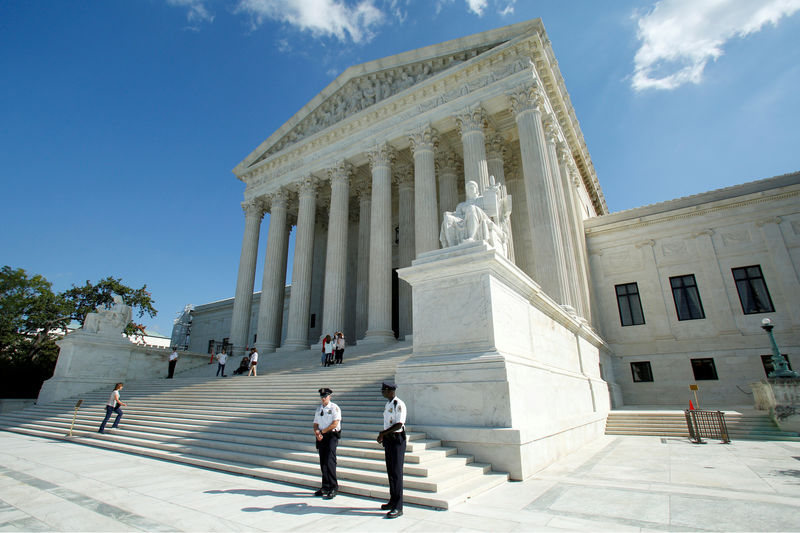By Lawrence Hurley
WASHINGTON (Reuters) - The U.S. Supreme Court on Monday turned away a Republican challenge to a federal campaign finance restriction that prevents political parties from raising unlimited amounts of cash to spend on supporting candidates.
The Republican Party of Louisiana had argued that a provision of the 2002 Bipartisan Campaign Reform Act violates free speech rights under the U.S. Constitution. But the justices let stand a lower court's ruling that rejected the Republican challenge.
The brief order noted that conservative Justices Clarence Thomas and Neil Gorsuch favored hearing the case.
The conservative-leaning court in recent years has rolled back campaign finance restrictions. In 2010, the court paved the way to unlimited outside spending on elections in a case called FEC v. Citizens United that concerned corporate spending.
In 2014, the court struck down limits on the total amount individuals can donate during the federal two-year election cycle. Both those decisions eroded sections of the 2002 law.
The measure is commonly known as the McCain-Feingold law after the two senators who sponsored it, Republican John McCain and Democrat Russ Feingold. It barred state and local parties from taking unlimited donations for any activities concerning federal elections.
Such donations are often called "soft money" because they are unregulated. They were a key target of the 2002 law.

The Supreme Court has previously turned down similar cases challenging party campaign finance restrictions, including one in 2010 just after the Citizens United decision that focused on the national parties and was brought by the Republican National Committee.